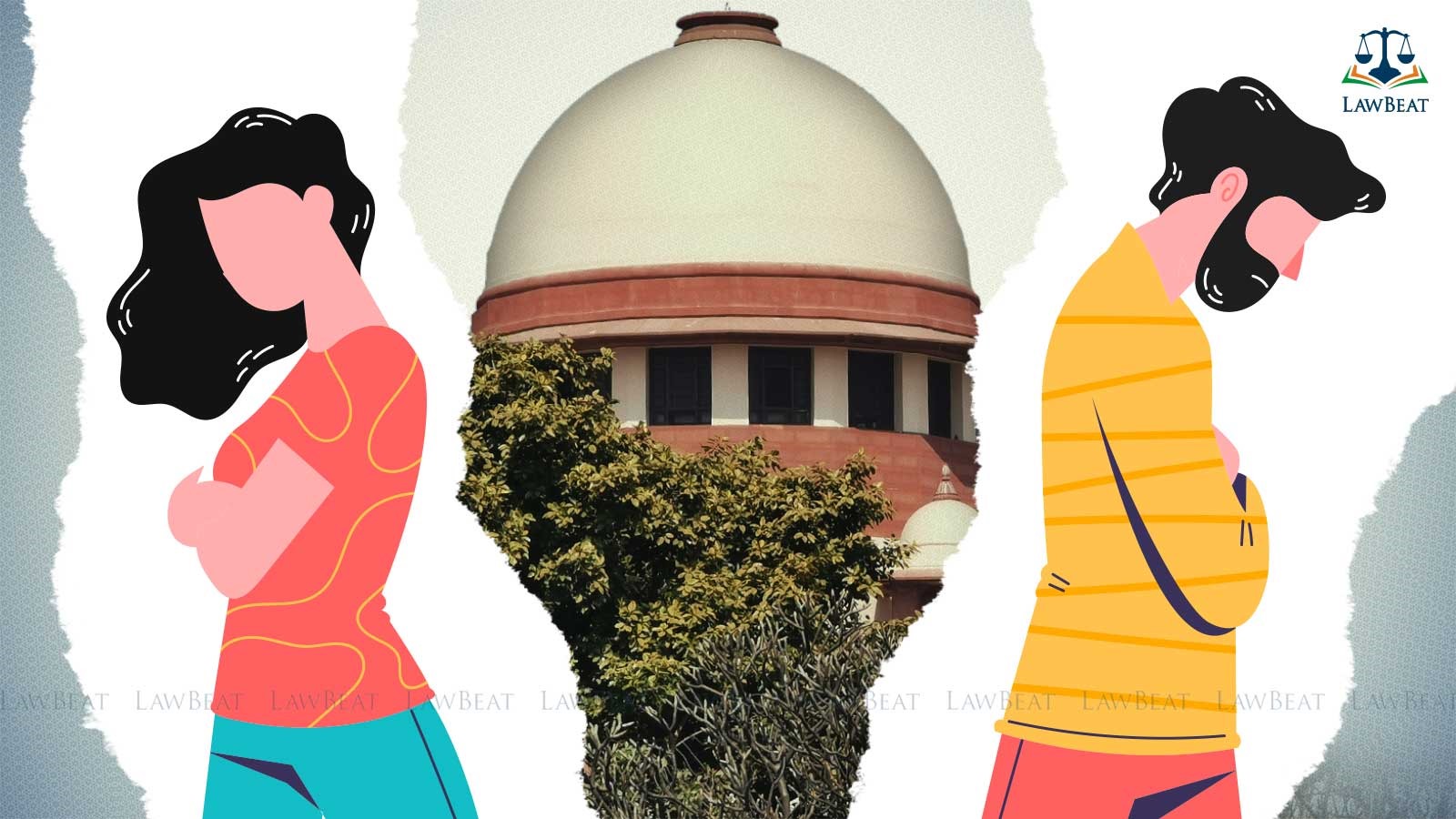'Formal union neither justified nor desirable': SC dissolves 33-yr-old marriage of couple

Court found the facts on record establishing that the marriage between the parties had broken down and that there was no possibility that the parties would cohabit together in the future
The Supreme Court has on May 6, 2024 used its extraordinary power 'to do complete justice' under the Constitution to dissolve the 33-year-old marriage of a couple on the ground of irretrievable breakdown, as efforts to make amicable settlement didn't bear any fruit.
A bench of Justices Vikram Nath and Satish Chandra Sharma noted that both the parties had been living separately for 22 years and the dispute fell within the parameters laid down by the Constitution bench in 'Shilpa Sailesh Vs Varun Sreenivasan' (2023).
"Despite being together for approximately 14 years, bitterness crept into the relationship between the parties. Whilst on one hand, it is alleged that the Respondent ill-treated the Appellant; and constantly acted against the Appellant at the behest of her parents. On the other hand, the Respondent Wife alleged cruelty and torture at the hands of the Appellant Husband," the bench noted.
The bench also noted that despite its best efforts, the parties were adamant on parting ways - citing an irretrievable breakdown of their marriage in the exercise of the jurisdiction of the top court under Article 142(1) of the Constitution.
The court asked senior advocate P S Patwalia to assist it in putting a quietus to the present lis.
Patwalia informed the court that despite his best efforts, the parties were not willing to arrive at an amicable settlement and that there was no possibility of the parties residing together. He placed on a record a short note outlining the details of his efforts including inter alia the deliberations between the parties in respect of the quantum of permanent alimony to be paid by the Appellant towards the Respondent.
'We have given due consideration to submissions made by the respective counsels and the materials placed on record. The undisputed facts of the case reveal that the parties have separated 22 years ago i.e., having cohabited last in January 2002. The children are now majors and gainfully employed; elder son is an associate in a dental clinic; and younger son is a video/film editor," the bench said.
"Thus, keeping in view the totality of circumstances, we are satisfied that the facts on record establish that the marriage between the parties has broken down and that there is no possibility that the parties would cohabit together in the future. Accordingly, we are of the considered opinion that the formal union between the parties is neither justified nor desirable," the bench added.
Without expressing any opinion on the merits of the allegations levelled inter se the parties, the bench deemed it appropriate to exercise the discretion under Article 142(1) of the Constitution of India and passed a decree of divorce on the ground of irretrievable breakdown of marriage.
The court noted the fact that the Appellant had previously been employed by various multinational corporations in managerial posts and the fact that the Appellant was presently endowed with a respectable estate.
The bench thought it fit and proper that the Appellant paid an amount of Rs 50 lakh to the Respondent Wife as permanent alimony.
The court allowed the appeal filed by the husband giving a schedule of payment to be made between May 15, 2024 and September 15, 2024.
The Appellant-husband assailed the correctness of an order of July 26, 2019 passed by the High Court of Punjab and Haryana which dismissed his appeal and accordingly upheld the correctness of an order of December 09, 2004 by the Additional District Judge (Ad Hoc), Faridabad. The Family Court had dismissed a petition instituted by the Appellant under Section 13(1)(ia) of the Hindu Marriage Act, 1955 seeking dissolution of marriage by way of a decree of divorce.
